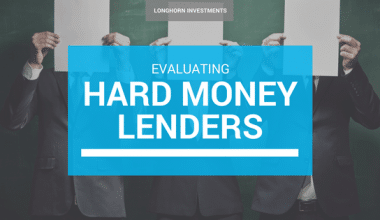Whether you’re a subdivision developer starting a new project or an office building owner looking to refinance, a commercial real estate loan is likely required. As opposed to residential real estate, commercial real estate is a property used for business, such as a hotel or a store. A typical commercial property loan borrower is a business owner (including small business owners), developer, or investor. We will look at business commercial property loans, SBA bank loans, structure, interest rates, and fees in this piece, and there are various options to pick from.
Commercial Property Loans
Banks and independent lenders, like residential mortgage lenders, are actively involved in making commercial real estate loans. Insurance companies, pension funds, private investors, and other sources of finance for commercial real estate include the U.S. Small Business Administration’s 504 Loan program.
What are you Going to use Commercial Property Loans for?
While most people equate commercial property loans with investing in commercial real estate, the purposes of these loans are more specific. Commercial real estate loans are meant to help you buy or fix up property you will use for your business. To qualify for commercial property loans, you must use most of the property to secure your business loan.
Here are some examples of business commercial property loans that may be appropriate:
- Purchasing an office building to house your business
- Adding or relocating retail space for your business
- Purchasing a warehouse to store your inventory
- Purchasing, constructing, or refurbishing a hotel that you will operate yourself
Commercial Property Loans Interest Rates and Fees
Commercial loan interest rates are often higher than residential loan interest rates. In addition, appraisal, legal, loan application, loan origination, and/or survey fees are commonly included in commercial real estate loans, which add to the overall cost of the loan. Some fees must be paid in advance before the loan is granted (or rejected), while others must be paid annually.
Types of Commercial Property Loans
There are various types of loans that can be used to finance a commercial property for a business. Each choice has its own pricing, terms, qualifications, and application process. Decide which type of loan is best for you before applying. Consider the following options:
- Bank term loan
- SBA loan
- Line of credit
- Portfolio loan
Under the SBA loan category, different types can be used to buy, build, or fix a commercial property. On the other hand, the SBA 504 Loan Program was set up just for this purpose. Although funds from the 7(a) program can be used to buy or improve real estate, the scheme is not optimal for financing real estate.
SBA Loans for Commercial Property
The Small Business Administration (SBA) of the United States provides several business loans to finance the purchase, improvement, or rehabilitation of the commercial real property. SBA 504 loans are specially meant to finance commercial property and other fixed assets, although the 7(a) loan might also be feasible.
SBA commercial property loans might be challenging to obtain. Still, they also provide some of the most excellent interest rates, making them well worth the effort and time you’ll need to devote to the application process.
Types of SBA Commercial Property Loans
The Small Business Administration provides financing programs that encourage small business borrowing and entrepreneurship. While the SBA does not make loans, it does guarantee a major portion of those made by banks and other approved lenders. These partial guarantees provide lenders with a justification to provide small business owners with long-term loans at low-interest rates that they would not have received otherwise.
Two SBA loan programs, in particular, help business owners buy high-value assets like real estate when they need money. The CDC/504 loan program and the SBA 7(a) lending program are available.
#1. SBA 504 loan program
The SBA 504 loan is the most common type of SBA loan for real estate. SBA 504 loans are intended to promote job creation and community development. They are made for organizations that want to buy big things like real estate or equipment.
#2. SBA 7(a) loan program
The SBA 7(a) lending program is another alternative for SBA commercial property loans. These loans are used for more general funding purposes—you can utilize your finances for various business needs other than real estate or equipment.
Benefits and Drawbacks of SBA Commercial Property Loans
SBA real estate loans have the same pros and cons as SBA loans: they’re great to have but hard to get. Here are some of the reasons why SBA loans are among the most sought-after sources of business funding:
Pros
#1. Interest rates are low.
The interest rate for SBA loans varies depending on the lender, loan type, and loan size, but SBA loans often have some of the lowest interest rates on the market. Even once expenses charged by the SBA and individual lenders are factored in, the annual percentage rate (APR) remains low.
#2. Long terms of repayment
You’ll have 20 to 25 years to pay back your SBA real estate loan, so your monthly payment will be pretty low. This makes it easier for your business to handle big real estate investments without causing too much trouble with its cash flow.
Despite their many advantages, SBA loans are not without flaws. Consider the following disadvantages:
Cons
#1. Protracted application and underwriting
SBA real estate loans aren’t always the quickest way to get capital—funding can take one to three months. The SBA loan application is significantly more time-consuming and demands more documents than other loan applications.
#2. There are no options for investment properties.
SBA bank commercial property loans can only be utilized to finance owner-occupied properties. For example, you cannot use an SBA loan to finance a fix-and-flip project. SBA loans are not available for investment properties.
Bank Loans for Commercial Property
Bank commercial property loans are mortgage loans used to buy, refinance, or remodel a commercial property. Many online and bank lenders offer commercial property loans, and each has slightly different terms, prices, and conditions. A business owner should think about the goal of the commercial real estate loan and then locate a lender that can best serve that purpose. If more than one lender provides the loan, choose the one with the best rate and terms for you.
The best banks for commercial property loans are listed below, along with what each one is best used for:
#1. U.S. Bank
SBA loans are among the commercial property loans available from US Bank. It is the best choice for people who want long-term loans for homes they own and live in for up to 25 years. On the other hand, U.S. Bank has higher credit requirements than the other lenders on this list, requiring a minimum credit score of 700.
#2. JPMorgan Chase & Co.
JPMorgan Chase says it is the top multifamily lender in the country and promises low-cost financing and fast loan closings. The maximum loan amount for its CRE loans is $15 million, which increases to more than $25 million for multifamily projects. JPMorgan Chase does not have a minimum time in the business requirement, which can benefit newer businesses.
#3. SmartBiz
SmartBiz is an excellent option for SBA 7(a) bank commercial real property loans. Because Small Business Administration loans have many criteria, we recommend you read our SBA 7(a) article before beginning the application process so you know what to expect.
#4. Lendio
Lendio is an excellent option for SBA 504 loans. An SBA 504 loan combines two loans: one from a lender and one from a CDC, which is a nonprofit lender. SBA 504 loans are advantageous since they provide up to $14 million in funding over a period of up to 25 years.
#5. Wells Fargo & Company
Wells Fargo is suitable for commercial property applicants seeking conventional bank mortgage loans. Also, Wells Fargo offers up to $1 million for five to ten years. However, larger projects can be funded for up to twenty years.
How to Obtain Bank Commercial Property Loans
There are various procedures involved in requesting and applying for commercial property finance.
- Carefully examine the financials of the commercial property. “Lenders will thoroughly assess the underlying asset as well as your personal credit history and financials,” Moreno says.
- Determine the sort of commercial loan you require and compare your options. If you have a decent credit history and your finances are in order, you should be able to deal with a bank.
- Apply for commercial real estate financing. Documentation will be required, including three years’ worth of personal and business tax returns, a personal financial statement, a personal balance sheet, and historical income and spending for the property. Sandagato adds, “[This] can also contain the property seller’s Schedule E from their federal tax return or a financial statement made by the seller.”
- Wait for the loan to be processed and underwritten. The lender will use the information you provide to verify the property’s ability to repay the debt. “In general, lenders expect the property to maintain a debt payment coverage ratio of 1.2 to one,” Sandagato explains.
- Complete the loan. Closing a commercial loan can frequently take longer than closing a residential mortgage. “Remember that a loan to purchase commercial property is more hazardous than a loan to purchase residential property,” Hollander advises.
What Are the Most Common Commercial Loans?
Here are your significant possibilities if you want to buy office space or need money for the next phase of your business strategy.
- Commercial Real Estate Loan.
- Business Line of Credit.
- Equipment Financing.
- Term Loan.
- Commercial Construction Loans.
- Commercial Auto Loan.
- SBA Loan.
- Bridge Loans.
What Are the Different Types of Loans Offered by a Commercial Bank?
- Term Loan.
- Bank Overdraft Facility.
- Letter of Credit.
- Bank Guarantee.
- Lease Finance.
- SME Collateral free loan.
- Construction Equipment loans.
- SME Credit Card.
What Are the Different Types of Loans Required by the Corporate?
- Commercial Real Estate Loan.
- Business Line of Credit.
- Equipment Financing.
- Term Loan.
- Commercial Construction Loans.
- Commercial Auto Loan.
How Do I Prepare for a Commercial Loan?
- Determine the reason for your loan.
- Determine which loan type and lender is best for your company.
- Assess your commercial.
What Is the Minimum Credit Score for a Commercial Loan?
To qualify for a commercial real estate loan, most lenders require borrowers to have a credit score of at least 660. Term loans, SBA loans, lines of credit, and portfolio loans are commercial real estate loans.
How Much Deposit Do You Need to Put Down for a Commercial Property?
Commercial lenders require a least 30% down payment before evaluating or approving a loan application. When investing in commercial property, your LTV cost will decrease, so you’ll likely require the borrower to contribute more to the down payment.
What Is a Private Commercial Loan?
Commercial loans are an alternative to government loans. They are based on credit, may have cheaper costs than government loans, and may even give the borrower the option of choosing between fixed and variable interest rates.
What Is a Good Interest Rate on a Commercial Loan?
Commercial real estate loan rates on average by loan type:
- Small Business Administration 7(a) Loan
- SBA 7(a) Loan 50%-11.25%
- USDA Business and Industry Loan 25%-6.25%
- Traditional Bank Loans 5%-7%
Conclusion
An investor (typically a business entity) owns the property, leases out space, and collects rent from the businesses that operate within the property using commercial bank property loans. The investment is intended to be a rental property.
Lenders consider the loan’s collateral, the entity’s creditworthiness (or principals/owners), including three to five years of financial statements and income tax returns, and financial ratios such as the loan-to-value ratio and the debt-service coverage ratio when evaluating commercial property loans.
Related Articles
- SMALL BUSINESS LOAN: How to Get a Small Business Loan
- BUSINESS LOANS BAD CREDIT: Definition and How to Get It
- COMMERCIAL REAL ESTATE LOAN: Overview & Requirements
- HOW TO GET SBA LOAN APPROVED: Best Easy Guide (+ Free Tips).
- SBA LOAN PROCESS: What It Is and How It Works






